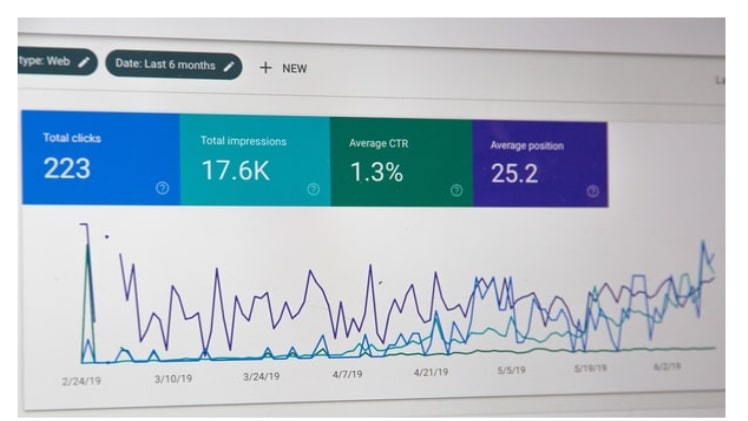Data analytics is the process of examining large data sets to uncover patterns and trends. This can be done manually, but more often it is done using software to help identify the relevant data and visualize the findings. Data analytics can be used to improve business decisions, understand customer behavior, detect fraud, and improve the performance of systems. As a new small business owner, you may be feeling overwhelmed by the amount of data you need to track and analyze in order to make informed decisions about your business. But don’t worry. Data analytics doesn’t have to be complicated or time-consuming. Keep reading for some tips on how to get started.
Using Analytics Platforms
An analytics platform is a software application that collects and analyzes data in order to help business owners make better decisions. The data can come from many sources, such as customer surveys, social media, website visits, or sales data. The analytics platform will then present this data in a way that is easy to understand and use to make changes or optimizations to the business. There are many different types of analytics platforms available, so it is important for business owners to do their research and find the one that fits their needs. Some platforms are more suited for small businesses than others, and some offer more features than others. It is also important to consider how much the platform costs and whether the company offers any support or training. Once a business owner has selected an analytics platform, they will need to start inputting data into it. This can be done manually or through automated means such as tracking codes on websites or social media posts. Once the data is collected, it can be used to improve things like website design, marketing campaigns, product offerings, and customer service.
Understanding the Importance of Data
Data analytics is the process of examining data to uncover trends and patterns. This information can be used to make business decisions, such as what products to sell or how to market them. Data analytics is a critical tool for small business owners, as it can help them make informed decisions about their businesses. Small businesses often lack the resources of larger businesses, so they need to be more efficient in order to compete. Analytics can help small businesses do this by providing insights into customer behavior, competitor strategies, and other important aspects of the business. With data, small businesses can identify opportunities and weaknesses that they would not otherwise be aware of. The use of data has become increasingly important in recent years as customers have shifted their spending towards online channels. Small businesses that don’t employ data will likely find themselves at a disadvantage compared to those that do. By using data tools and an analytics platform system, small businesses can gain a better understanding of how their customers interact with their business and make changes accordingly.
How Small Businesses Get Started With Data Analytics
Small businesses can get started with data analytics by understanding what data they have and what questions they need answered. They can then use that data to make better business decisions. Small businesses should start by collecting all the data they have, including customer data, financial data, and operational data. They can then use that data to answer important questions. What are my most profitable products or services? What are my biggest expenses? How do I attract more customers? What is the lifetime value of my customers? What marketing campaigns are most effective? How efficient am I in terms of resources used? These are just a few inquiries to consider when thinking about using a data analytics platform for your small business. When you answer these questions you can focus more on hiring globally and managing international payroll better.
Defining Your Business Goals and Objectives

Small business owners who are looking to get into data should start by defining their business goals and objectives. This will help them to determine the specific areas of their business that they need to focus on in order to achieve these goals. It is also important for small business owners to be realistic about what can be achieved with data, and not try to take on too many projects at once. Data can be used to improve a wide variety of aspects of a small business, such as marketing, sales, customer service, and operations.
Benefits of Data Analytics for Small Businesses
One of the benefits of data is that it can help small businesses understand their customers and target them with appropriate marketing. They can identify what products and services they are most interested in. This information can help businesses develop marketing strategies that are more effective and target their customers more accurately. By analyzing data, small businesses can also identify new business opportunities that they may not have otherwise discovered. This information can help businesses grow their business and expand their reach. Data can help businesses see where they may be losing money and need to make changes, as well as track inventory and pricing. Additionally, it can help small businesses create more efficient workflows and better manage their resources. Ultimately, it can help small businesses operate more effectively and make more money. By using an analytics platform, small businesses can better understand their financial situation and identify potential financial risks. This information can help businesses make more informed decisions about their finances and avoid potential financial problems. It’s also a lot easier for small companies to stay competitive with larger businesses when they use an analytics platform system. This information can help them identify new ways to improve their operations and compete more effectively in the marketplace.
In conclusion, data is essential for new small business owners because it allows them to make informed decisions based on real data. This can help them to grow their businesses more effectively and efficiently. Overall, data is a valuable tool that should not be ignored by small business owners. By analyzing collected insights, small businesses can identify areas where they need improvement, understand their customers better, and identify new business opportunities.

